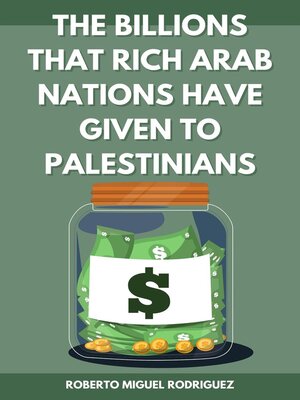
Sign up to save your library
With an OverDrive account, you can save your favorite libraries for at-a-glance information about availability. Find out more about OverDrive accounts.
Find this title in Libby, the library reading app by OverDrive.



Search for a digital library with this title
Title found at these libraries:
| Library Name | Distance |
|---|---|
| Loading... |
For decades, wealthy Arab nations have been at the forefront of financial support for the Palestinian cause, contributing billions of dollars in aid to assist Palestinians in their struggle for self-determination and improved living conditions. These funds have been used for humanitarian aid, infrastructure projects, education, healthcare, and to support the Palestinian Authority and various factions within the Palestinian territories. Yet, despite the significant sums involved, questions abound regarding the effectiveness and impact of this aid. The Billions that Rich Arab Nations Have Given to Palestinians examines the complex dynamics of financial support from the Arab world to the Palestinians, exploring both the successes and failures of this long-standing commitment.
This book takes a deep dive into the motivations behind these financial contributions, the political and strategic considerations that have influenced them, and the challenges surrounding the distribution and use of the funds. From the promises of solidarity and pan-Arab unity to the actual on-the-ground realities, we explore how this vast flow of money has been managed, and sometimes mismanaged, in ways that have shaped the Palestinian political landscape.
Through interviews, data analysis, and historical examination, we dissect the mixed legacy of Arab financial aid. Has this money fostered true progress, or has it merely propped up a system that has failed to deliver lasting change? How much of the aid has been tied to political leverage, and to what extent have the needs and aspirations of the Palestinian people been met?
The Billions that Rich Arab Nations Have Given to Palestinians seeks to provide an honest, nuanced account of this financial relationship. It is a story of hope, frustration, and complexity, one that holds important lessons for the future of Palestinian development, as well as the broader Arab-Israeli conflict. The book challenges readers to critically assess the real impact of foreign aid in the context of the Palestinian struggle, urging a reevaluation of what meaningful support looks like in a conflict that has defied resolution for generations.







